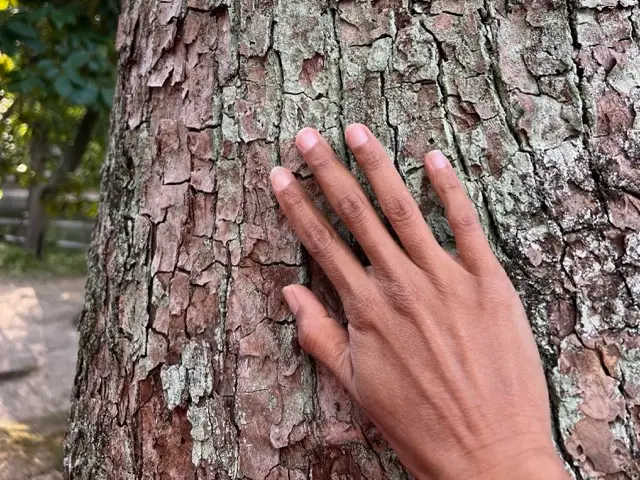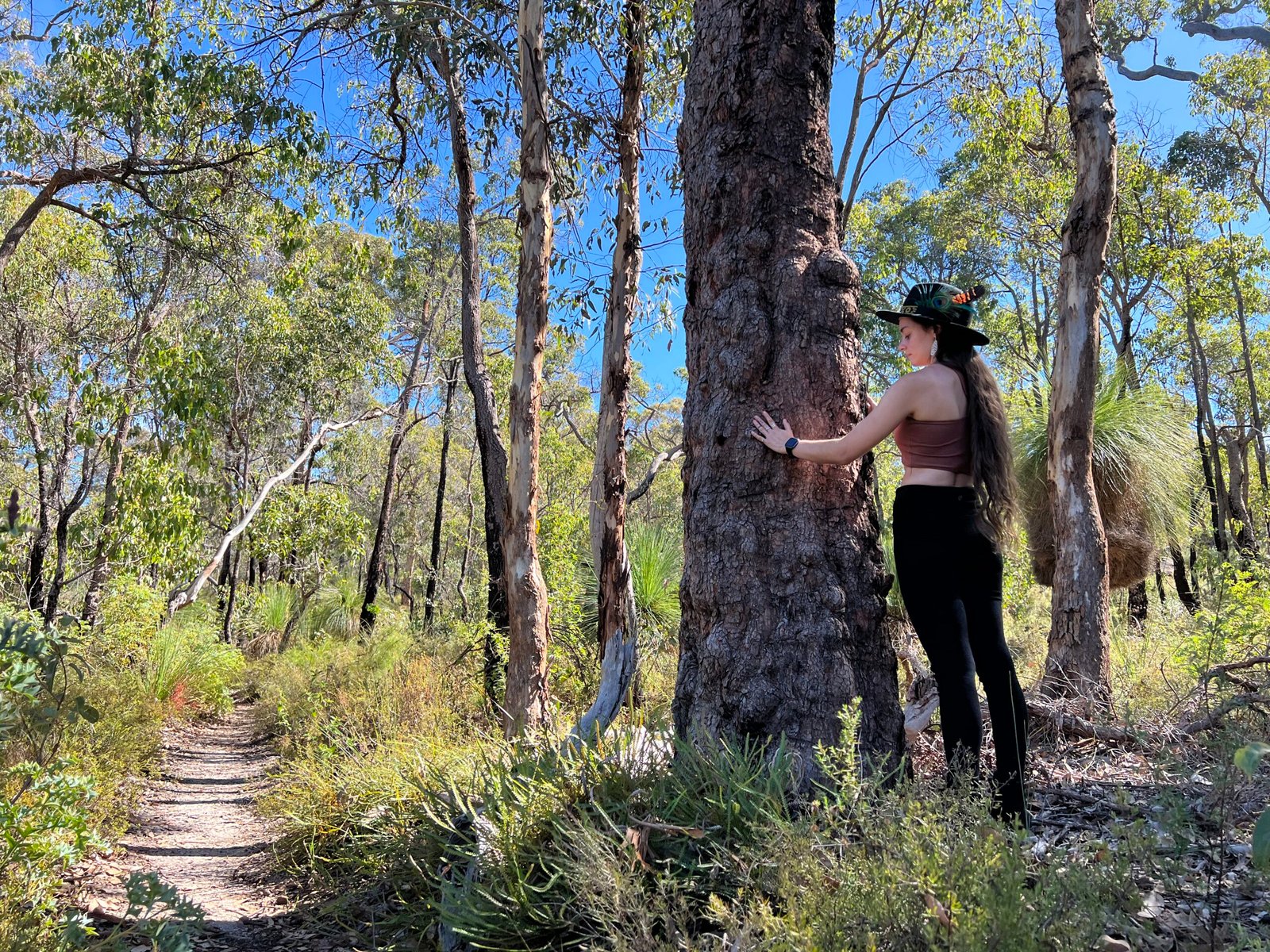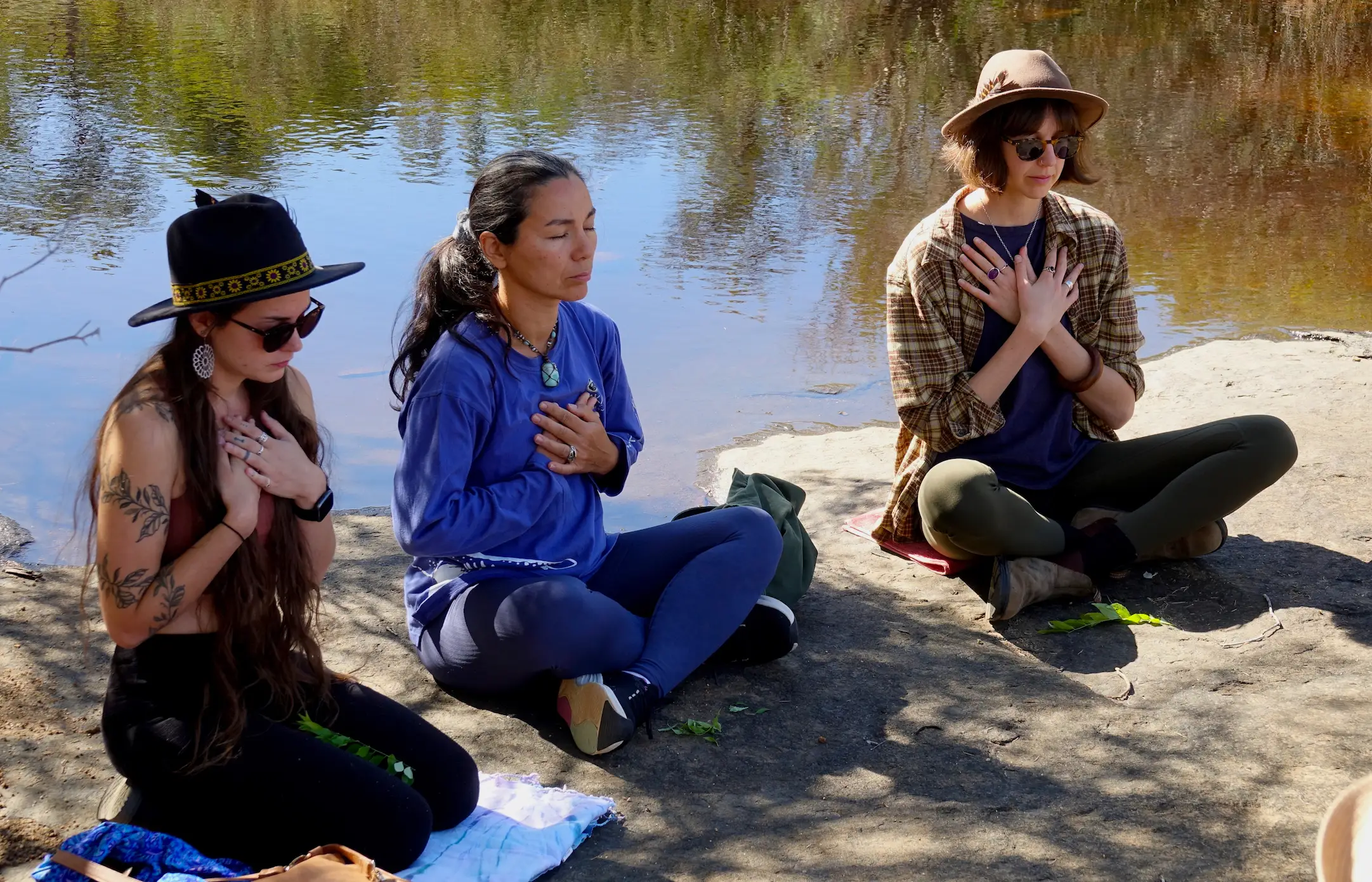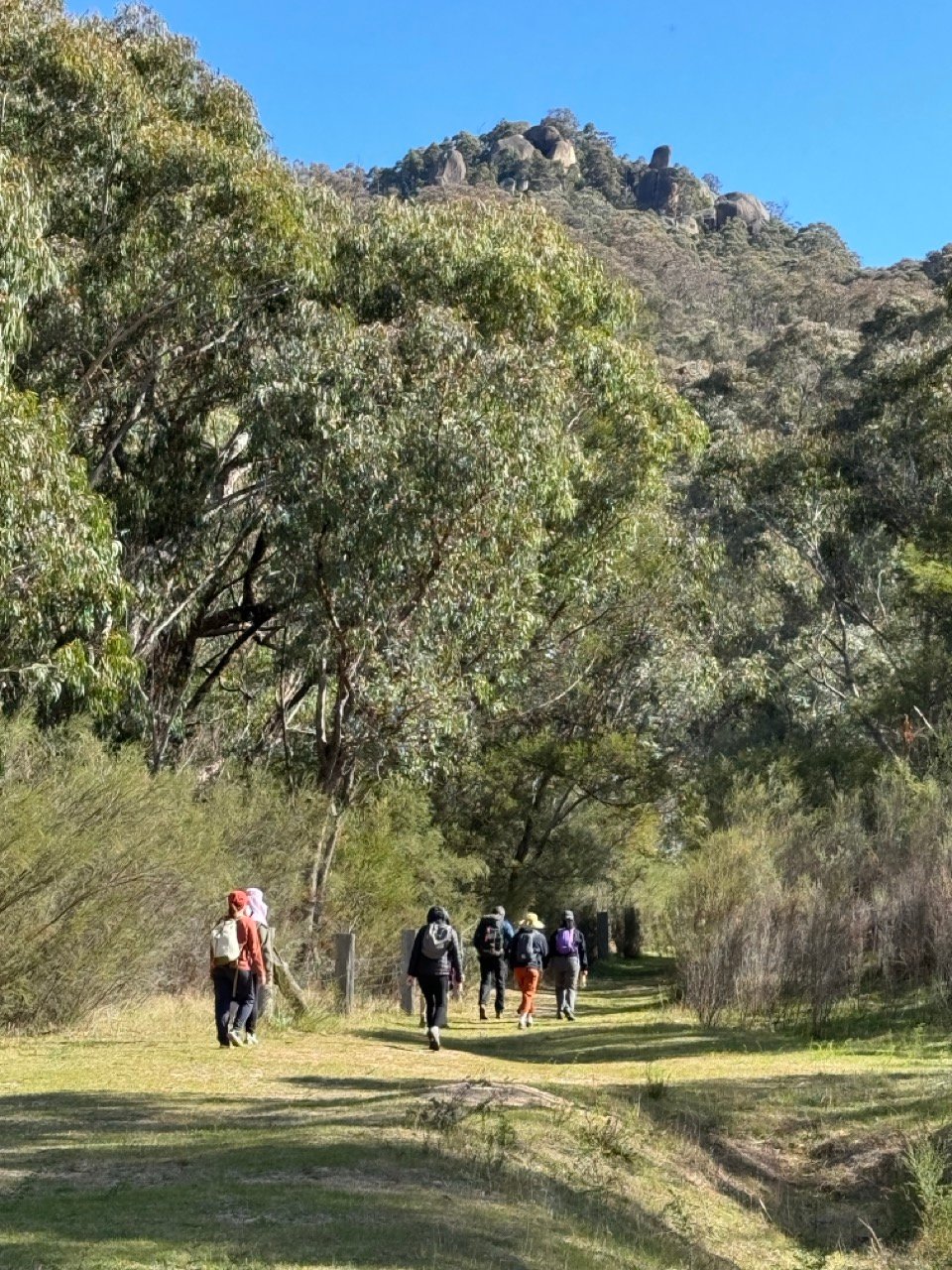These benefits are thought to be rooted in our evolutionary history, with researchers proposing that humans have an innate affiliation with nature, a concept known as biophilia, which has played a crucial role in our survival and thriving as a species. It explains why even today, in our modern world, we find such profound healing and rejuvenation in natural settings.

Immersing ourselves in nature offers interconnected benefits that nourish our entire being – from tangible improvements in physical health to profound enhancements in mental and emotional/ psycho-spiritual well-being.
Research has shown that time spent in natural environments can lower blood pressure, reduce stress hormones, boost immune function, improve mood and cognitive performance, foster social connections, and deepen our sense of belonging to the wider ecological world.
Spending time in nature can significantly improve our overall physical health and well-being.


There are a myriad of mental/ psychological benefits to spending time in nature.
Harder to quantify are the emotional, psycho-spiritual and relational benefits, which include:


Spending time in nature activates the parasympathetic nervous system, promoting a state of relaxation and reducing stress by lowering blood pressure, heart rate, and autonomic arousal.
Studies have shown that even brief exposure to natural environments can lead to positive changes in heart rate variability and improved recovery of autonomic nervous system function following stressful events, suggesting that nature immersion may be an effective tool for regulating the body’s stress response.
More info:
Associations between Nature Exposure and Health: A Review of the Evidence. https://pmc.ncbi.nlm.nih.gov/articles/PMC8125471/
In her groundbreaking research, Professor Ming Kuo reveals that nature’s impact on our health goes far beyond simple relaxation. From the phytoncides released by trees to the beneficial microbes in soil, nature is teeming with elements that boost our immune system and overall well-being. These natural ‘active ingredients’ – including natural sights, natural sounds, negative air ions and environmental biodiversity – work in concert to reduce stress, improve mood, and promote physical healing.
More info:
Kuo M. (2015). How might contact with nature promote human health? Promising mechanisms and a possible central pathway. Frontiers in Psychology, 6.
https://pmc.ncbi.nlm.nih.gov/articles/PMC4548093/
Awe is a profound emotional response characterised by a mixture of wonder, reverence, and often a touch of fear, typically evoked by encounters with vastness, beauty, or power that transcend our usual understanding of the world. This complex emotion can be triggered by diverse experiences, from witnessing the grandeur of nature to marvelling at human achievements or contemplating the mysteries of the universe.
Research shows that experiencing awe can increase life satisfaction, reduce stress, improve physical health, and foster a more harmonious society by making people more helpful and less aggressive, while also providing a sense of connectedness that puts personal problems into perspective.
More info:
https://hub.jhu.edu/magazine/2023/winter/science-of-awe-psychedelics/
Plants, especially trees, produce a wide variety of natural volatile organic compounds (NVOCs) that serve many purposes. These compounds, including terpenes like pinene and limonene, have been found to have beneficial effects on human health, such as antioxidant and anti-inflammatory properties, as well as potential to reduce stress and improve cognitive performance.
Phytoncides have been shown to significantly enhance human natural killer (NK) cell activity. Studies have demonstrated that exposure to phytoncides, either through forest bathing or controlled environments, can increase NK cell activity by up to 50% and boost the production of anti-cancer proteins like perforin, granulysin, and granzymes A and B in lymphocytes. These beneficial effects on immune function can last for up to 30 days after exposure, suggesting that regular contact with nature could have long-lasting positive impacts on our health.
More info:
Li, Q., Kobayashi, M., Wakayama, Y., et al. (2009). Effect of phytoncide from trees on human natural killer cell function. International Journal of Immunopathology and Pharmacology, 22(4), 951-959.
The concept of ‘biophilia’ was first popularised by Biologist E.O. Wilson in 1984. Biophilia is the innately emotional affiliation of human beings to other living organisms.
This profound connection, deeply rooted in our evolutionary history, manifests as a subconscious urge to seek relationships with nature and other life forms, influencing our well-being, creativity, and sense of place in the world.
More info:
Wilson, E.O. (1984). Biophilia. Cambridge, MA: Harvard University Press.
Attention Restoration Theory proposes that nature’s restorative effects stem from its ability to engage our involuntary attention or ‘soft fascination’, allowing our directed attention to rest and recover from fatigue. Their theory outlines four key processes that contribute to nature’s restorative capacity: being away from routine, soft fascination with natural phenomena, extent or immersion in nature, and compatibility with human needs and desires.
More info:
Kaplan, R., & Kaplan, S. (1989). The experience of nature: A psychological perspective. New York: Cambridge University Press.
Intentional Nature Time
Forest Bathing/ Nature Bathing
Our Offerings

Lorem ipsum dolor sit amet, consectetur adipiscing elit. Ut elit tellus, luctus nec ullamcorper mattis, pulvinar dapibus leo.

Lorem ipsum dolor sit amet, consectetur adipiscing elit. Ut elit tellus, luctus nec ullamcorper mattis, pulvinar dapibus leo.
